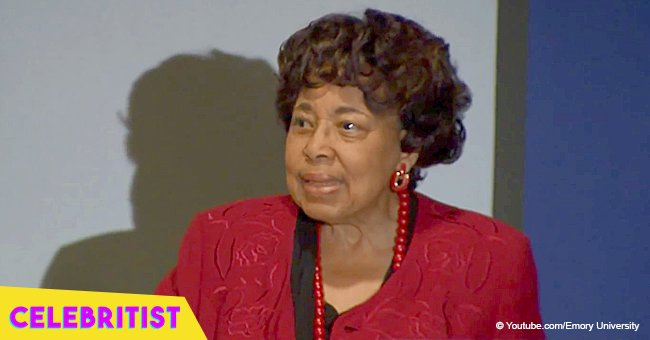
Martin Luther King Jr.'s adviser and Civil Rights leader Dorothy Cotton dies at age 88
Dorothy Cotton, known as an icon of the civil rights movement and an adviser to Rev. Martin Luther King Jr., passed away at 88-years-old.
Dorothy Cotton spent the latter part of her life at the retirement community Kendal at Ithaca. On Sunday afternoon, the iconic civil-rights leader passed away at the age of 88.
Cotton worked with Martin Luther King Jr. as the educational director of the Southern Christian Leadership Conference, and later on made her mark in Tompkins County, devoting her time and effort to doing community work for the area, and advocating for civil rights around the country through her Ithaca-based Dorothy Cotton Institute.
Dorothy and Martin met in 1960, when he preached at the church she constantly attended in Petersburg, Virginia. The two became close during their time working with the Southern Christian Leadership Conference.
According to the biography written on the Dorothy Cotton Institute website, her place in Martin Luther King Jr.'s inner circle made her a key figure in the Civil Rights Movement as an educator, planner, activist, and leader.
Baruch Whitehead, associate professor of music education at Ithaca College and director of the Dorothy Cotton Jubilee Singers shares how great of a woman Dorothy was.
"She was a strong African-American woman. She always wanted people to know she did not work with King, but alongside King. I will remember her as a regal giant of social justice who would embrace all people to bring them together. [The choir] will continue on the path chosen to pattern ourselves on her social justice work."
Whitehead founded the choir in 2010, and named it after Cotton to protect her legacy. Likewise, Xernona Clayton, King's past office manager in Atlanta, organized protest marches and fundraisers on his behalf, shared how Dorothy always knew how to lighten up a tense situation.
"She had a beautiful voice, and when things got tense, Dorothy was the one who would start up a song to relieve the tension."
Dorothy helped King create his "I Have a Dream" speech, and was staying in a room adjacent to his at the Lorraine Motel in Memphis Tennessee on April 4, 1968, when King was assassinated.
According to Ithaca Journal, before the civil-rights march in August 1963, Cotton recalled running back and forth between her hotel room and Martin's to type down notes and rewrite sentences that he wanted to change.
"He was looking at notes, except I know towards the end, he was not reading; he was just talking from his heart. Dr. King was always much better when he was just coming from his very soul and just talking from his heart."
Much of Dorothy's work after the MLK Jr. era was centered on voter education, teaching people how to read ballots, how to vote, and the importance of voting. She developed and spearheaded the Atlanta-based Citizen Education Program, which trained disenfranchised people to become civically and politically involved, organzing methods for voter registration and non-violent protests.
Dorothy Cotton was born in Goldsboro, North Carolina. She had three sisters, and all four of them were raised by their father after their mother passed away while they were young. She earned a bachelor's degree in English and Library Science at Virginia State College, and afterwards got her master's degree in speech therapy from Boston University in 1960.
According to Jared Harrison, a close friend of Cotton, said that a small, private burial and a larger public memorial are planned for Dorothy in Ithaca, but details have not been finalized.
